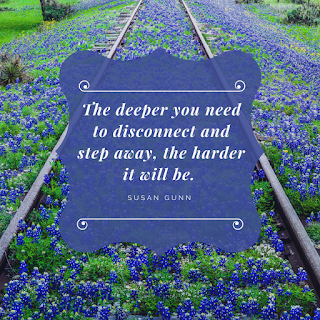On March 21st, 9-1-1, a new show on FOX, aired the latest episode, “A Whole New You.” There has been a compelling story line into the trials and tribulations of family caregiving. In fact, that is the story line that drew me into the show.
Abby, one of the show’s protagonists, is a caregiver for her mother, Patricia Clark, who has Alzheimer’s. The scenes between mother and daughter portray the difficult, 24/7 emotional battle that is homecare. Viewers are given a brief glimpse into the unexpected outcomes of caregiving; how it doesn’t matter if you had prior plans when you are needed, how anything can happen at any time, and how emotionally draining and life altering an experience it really is.
In the previous episode “Trapped,” Patricia lashes out and delivers Abby a slap so unexpected, even the audience could feel its sting. The scene cuts particularly close to the intensity and depth of hurt that inevitably happens when caring for our aging loved ones. That episode ends with Abby finding her mother passed away in the hospital bed she had set up in her own living room. “A Whole New You” picks up that story line as Abby is left to grapple with the powerful force of grief and the fog that follows.
At the end of the episode, in an emotionally raw moment, Abby states, “I no longer know who I am.” I paused the scene and revisited the emotion I felt when my Mom died. A few deep breaths later, I realized how much Abby’s pain resonated with me and my sixteen years of caregiving. This great script writing has to be from someone who experienced caregiving and the acting excellently portrays the raw emotions.
A Caregiver is truly who I became. The longer the job went on, the more it consumed every facet of my life, while my old self slowly faded away. Then, suddenly when my primary focus of caregiving was complete, it was final. Planning around doctor visits, declining friend’s invites, overseeing my parent’s calendars more than my own and in the blink of an eye it all became non-existent. My main purpose of life left me like Abby – I no longer knew who I was. It was the intensity of a tornado and its sudden end.
March 20th designated seven years since Mom passed away. Caregiving changed me in ways I never imagined. There are bits of myself and things I once enjoyed that are still slow to return.
My life was severely altered for sixteen years, with the weight of care giving primarily on my shoulders. I was not the same person who entered caregiving that exited that day, though I had put several stakes in the ground, emotional bread crumbs to come back to when caregiving was finished.
Seven years later, life has moved on. Some days are great, while some are not. I believe that is true of most people, regardless of whether caregiving was or is part of their life. Then again, it would be hard for me to gauge.
I do know that seven years later, I still occasionally feel emotional exhaustion. If it is anything like putting on weight, it may be a while until feeling fully refreshed. I make sure to choose activities to aid me along. Digging in dirt working in flower beds, getting my car washed, maintaining a clean house, cleaning out closets and drawers, going to baseball games, enjoying the company of friends over dinner, and laughing as much as possible. Laughing – now, that is refreshingly good for the soul.
In the chapter, “Frustration: Patience is Truly a Virtue,” of my book, Matters of The Heart, I wrote:
“The ballpark is the one place I could go, have a hotdog and a drink, and not think aboutanything except baseball. It quickly became my refuge from the stresses of caregiving. There are 81 home games every year. I bet we went to at least 65 home games thatfirst year. It was the one sense of normalcy that I had and I clung to it. They were my outlet – win or lose.
There must be outlets when you are the primary caregiver. One time, I wrote a list ofall the things that made me feel good on separate slips of paper and put them in a jar.When I felt overwhelmed, I would pick one.
My favorite was a massage. Another was getting my car washed. Another was sittingoutside in the sun. Another was taking a long hot soaking bath with a glass of wine, andnice bubbles or bath salts. Another was burying myself in a favorite fiction author. Another was going to the movie and buying popcorn.”
Like Abby, I did not learn enough about the necessity of stepping away from the intensity more often and was frequently overwhelmed by the angst and heartache that comes with caregiving. I could measure the burden severity, when taking time to step away, by whether I listened to the radio on my seven hour drive to my timeshare condo on North Padre Island. No radio meant I needed the silence. With every mile driven, I was liberated by the thought of all the stress being blown out the window, under the tires, and rolled right over.
If you find yourself in the intensity of caregiving, take opportunities to step away. It took some arranging, but when I stepped away, I did not communicate with home. As caregivers, we are enslaved to our phones. It is often an addiction. It is our emotional lifeline. And, yet, it is more debilitating and detrimental to our lives than we realize. It is an exhausting, emotional reminder of all that entangles us, either consciously or not. Constant accessibility is not always emotionally healthy for anyone.
Step Away. Make it happen for the sake of you! Let everyone know you will not be available. If it is an emergency, use a 9-1-1 text code, but inform everyone who consumes your life that it best be an emergency.
Truly step away – even if just for a day. It does not have to be extravagant. Go to a museum. Drive through the mountains. Get a massage. Hike a trail. Take a chair to a park, have a picnic and listen to the birds.
It is your day – spend it doing something you have always wanted to do, or something you may not have done in a while. It is not the time to grocery shop or run errands. Enjoy your time. In joy, step away.
Warning: The deeper you need to disconnect and step away, the harder it will be. You will be tempted to continue your enslavement with accessibility. That is the addiction entanglement. Speaking from experience, that is not optimizing your much needed break. If I knew the bases were covered, I often put my phone in airplane mode. Sometimes I even recorded a custom voicemail: “So great to hear from you. Please leave a message but I have stepped away for a few days and will not be returning phone calls until Monday. If this is an emergency, please call _____. Thanks!”
Abby recognized the necessity of stepping away before it affected one specific valued relationship. The intensity of caregiving affects all our relationships, not just the one being cared for. If it changes us, it is a given that it will change all our relationships with others.
Stepping away is connecting with the “you” that you enjoyed before the intensity of caregiving. Stepping away is at best a self-preservation mode, preserving you, your sanity, your relationships, your attitude, your life, et al.
Stepping away is an art-form worth learning.
If you want to read more about my dealings with Matters of The Heart, you can find my book here.


